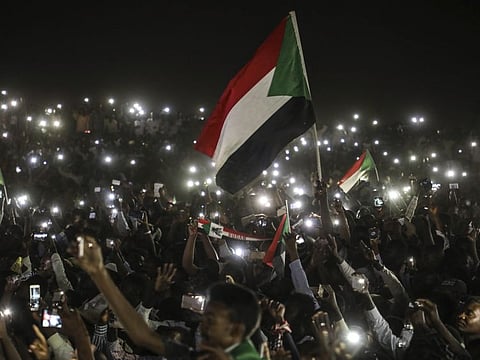Sudan shouldn’t become another Syria or Libya
Protesters must have a realistic vision on how the country should move forward

As Sudanese protesters continue pushing for their legitimate demands for a transitional government following the ouster of longtime ruler Omar Al Bashir, it is important that ongoing talks do not get derailed.
The transition should balance the ambitions of the people with institutional stability and the military has a key role to play in this transition. While protesters want the composition of the interim government to be made up mostly of civilians, they must also take into account the need for security, lest it becomes another Syria or Libya, where the conflict spirals into bloodshed.
So far, the military has acquiesced on several key demands of the protesters including jailing Al Bashir, sacking some controversial members of the Transitional Military Council and agreeing to an immediate transfer of power rather than a three-month period. The protesters, weary of “tricks” by the military, have kept up their sit-in since April 6 in front of military headquarters. They believe that the military is not serious about transferring power to civilians.
The trust gap can only be bridged by continuous dialogue and compromise on both sides. Up until Tuesday, the protests were peaceful in nature. However, late Tuesday, seemingly losing their patience, they resorted to civil disobedience, blocking roads and setting fire to tyres.
The Sudanese Professional Association has vowed to keep up their peaceful protests until their demands are met, but with the latest instance of civil disobedience, the military might also lose patience with the protests. This will bring the country to a dangerous juncture where either peace or violence will prevail. Just as the military compromised, the protesters must have a realistic vision on how the country should move forward.
Democratic civilian rule must, at least for the interim period, be overseen by experienced military leaders. The TMC reiterated that it was open to more talks, but warned there should be no further unrest beyond Tuesday, a reference to protests disrupting trains and blocking bridges. It said it would not disperse a protest sit-in that has been staged outside the Defence Ministry since April 6.
UAE minister of State for Foreign Affairs Anwar Gargash put it best when he said on Wednesday, “We have experienced all-out chaos in the region and, sensibly, don’t need more of it.” The aftermath of the so-called Arab Spring protests proved bloody for many countries particularly Syria, Yemen and Libya. It is important that Sudan steers clear of going down the same path.



